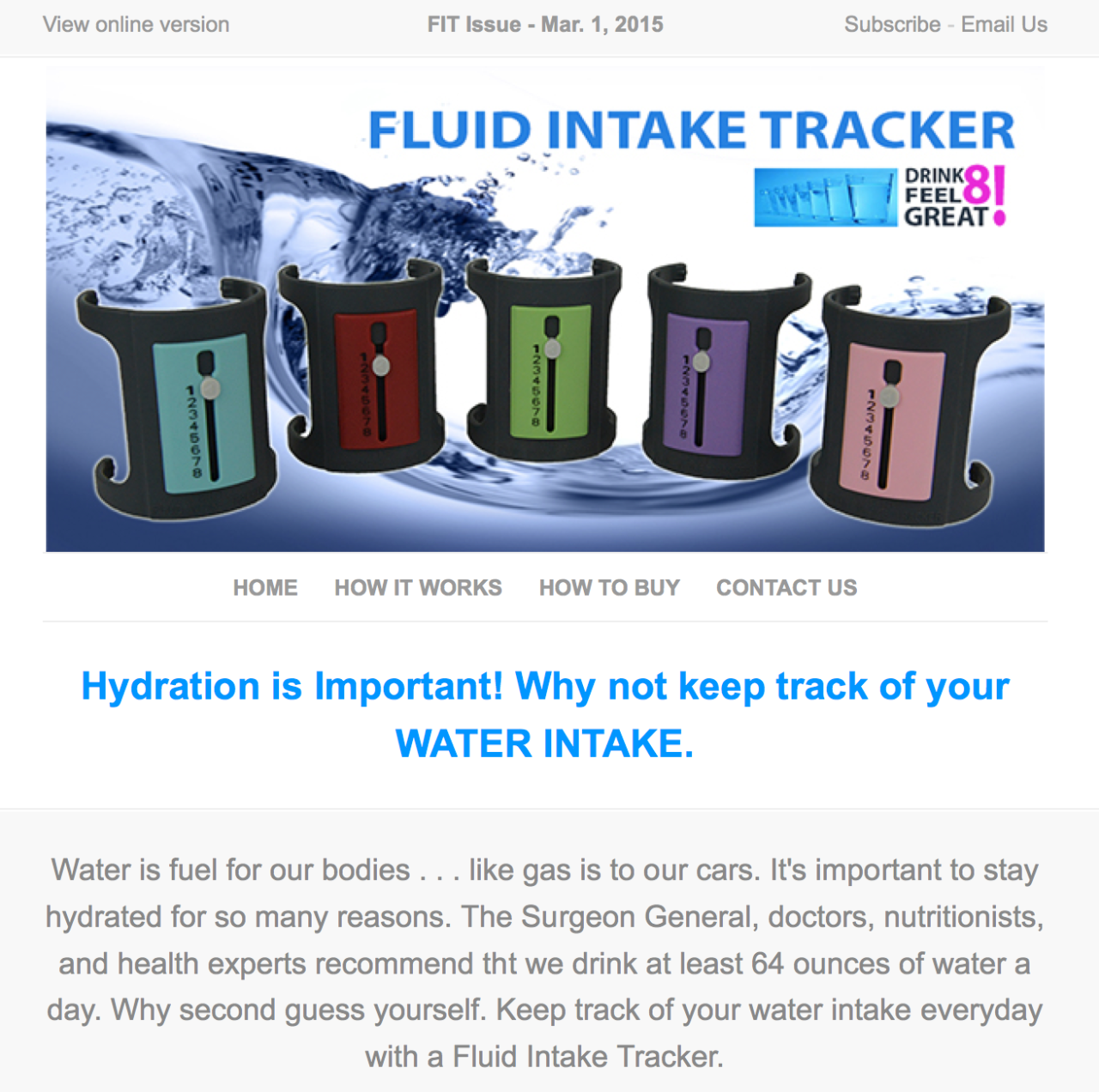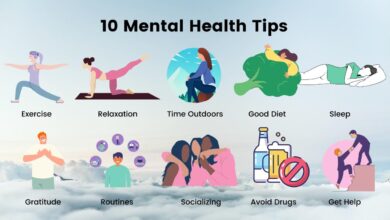
Should You Track Hydration?
Should you track hydration? It’s a question many of us ponder, especially in the age of fitness trackers and wellness apps. While staying hydrated is crucial for overall health, the constant reminders and data points can sometimes feel overwhelming. This article explores the benefits and drawbacks of tracking your water intake, helping you decide if it’s a worthwhile practice for you.
From understanding the vital role of water in our bodies to the various methods of tracking hydration, we’ll delve into the intricacies of this essential aspect of health and wellness. We’ll also examine the potential downsides of relying too heavily on technology, highlighting the importance of finding a balance that works best for you.
The Importance of Hydration
Water is essential for life and plays a vital role in numerous bodily functions. It comprises approximately 60% of our body weight and is involved in everything from regulating body temperature to transporting nutrients and oxygen.
Consequences of Dehydration
Dehydration occurs when the body loses more fluids than it takes in. Even mild dehydration can have noticeable effects on our health.
- Reduced Physical Performance:Dehydration can impair athletic performance, leading to fatigue, muscle cramps, and reduced endurance.
- Cognitive Impairment:Dehydration can affect cognitive function, leading to decreased concentration, memory problems, and headaches.
- Kidney Problems:Dehydration can strain the kidneys, increasing the risk of kidney stones and other complications.
- Constipation:Dehydration can lead to constipation by slowing down the digestive process.
- Heat Stroke:In extreme cases, dehydration can lead to heat stroke, a life-threatening condition characterized by high body temperature, confusion, and seizures.
How Dehydration Affects Various Systems in the Body
Dehydration can have a significant impact on various systems in the body, including:
- Circulatory System:Dehydration can reduce blood volume, making it harder for the heart to pump blood effectively.
- Digestive System:Dehydration can lead to constipation, indigestion, and other digestive problems.
- Nervous System:Dehydration can affect brain function, leading to fatigue, dizziness, and headaches.
- Musculoskeletal System:Dehydration can contribute to muscle cramps and joint pain.
- Skin:Dehydration can cause dry skin, wrinkles, and a decrease in skin elasticity.
Signs and Symptoms of Dehydration
The severity of dehydration can range from mild to severe, with corresponding signs and symptoms:
| Level of Dehydration | Signs and Symptoms |
|---|---|
| Mild | Thirst, dry mouth, fatigue, decreased urine output, headache |
| Moderate | Increased thirst, dizziness, lightheadedness, rapid heartbeat, muscle cramps, dark urine |
| Severe | Extreme thirst, confusion, delirium, seizures, rapid breathing, low blood pressure, shock |
Factors Influencing Hydration Needs: Should You Track Hydration
Your daily water needs are not static and can fluctuate depending on various factors. Understanding these factors is crucial for optimizing your hydration and ensuring your body functions optimally.
Age
As we age, our bodies naturally lose water more quickly, making it even more important to stay hydrated. This is because older adults often experience a decline in thirst sensation, which can lead to dehydration. Additionally, certain medications can also increase the risk of dehydration.
Tracking hydration is crucial for overall health, especially after a workout. You’re not only replenishing fluids, but also giving your body the fuel it needs to recover. And while you’re refuelling, don’t forget that your post-workout music has a big impact on your recovery too! Choosing the right tunes can help you relax, de-stress, and even enhance your muscle repair.
So, make sure to stay hydrated, crank up the tunes, and give your body the best possible chance to bounce back.
Activity Level
Our hydration needs increase significantly during physical activity. This is because we sweat more during exercise, losing fluids through perspiration. The intensity and duration of your workouts directly impact your water requirements. For example, a high-intensity workout session will necessitate greater fluid intake than a moderate walk.
Climate
Hot and humid weather increases our water loss through sweating. Our bodies work harder to regulate temperature in these conditions, requiring us to replenish fluids more frequently. Similarly, high altitude can also lead to increased fluid loss due to thinner air.
Health Conditions
Certain health conditions can influence hydration needs. For example, individuals with kidney disease may need to limit their fluid intake, while those with diarrhea or vomiting may require increased fluid intake to prevent dehydration.
Recommended Daily Water Intake
The table below provides a general guideline for recommended daily water intake based on age and activity level:
| Age Group | Activity Level | Recommended Daily Water Intake (Liters) |
|---|---|---|
| Children (1-3 years) | Moderate | 1.0-1.5 |
| Children (4-8 years) | Moderate | 1.5-2.0 |
| Children (9-13 years) | Moderate | 2.0-2.5 |
| Teenagers (14-18 years) | Moderate | 2.5-3.0 |
| Adults (19-50 years) | Sedentary | 2.0 |
| Adults (19-50 years) | Moderate | 2.5-3.0 |
| Adults (19-50 years) | High | 3.0-4.0 |
| Adults (51-70 years) | Sedentary | 1.5 |
| Adults (51-70 years) | Moderate | 2.0-2.5 |
| Adults (51-70 years) | High | 2.5-3.0 |
| Adults (Over 70 years) | Sedentary | 1.0 |
| Adults (Over 70 years) | Moderate | 1.5-2.0 |
| Adults (Over 70 years) | High | 2.0-2.5 |
Factors That Increase Hydration Needs
- High temperature and humidity
- High altitude
- Intense physical activity
- Diarrhea or vomiting
- Certain medications
- Pregnancy and breastfeeding
Factors That Decrease Hydration Needs
- Kidney disease
- Heart failure
- Liver disease
Methods of Tracking Hydration
Tracking hydration is crucial for maintaining overall health and well-being. It helps ensure you’re consuming enough fluids to support various bodily functions. While thirst is a natural indicator, it’s often not a reliable guide, especially during intense physical activity or hot weather.
Several methods can help you monitor your hydration levels and adjust your fluid intake accordingly.
Traditional Methods
Traditional methods for tracking hydration rely on self-monitoring and simple calculations. These methods are accessible and require minimal resources.
Staying hydrated is essential for overall health, and it can even impact your sleep quality. Studies have shown a strong link between poor sleep and cardiovascular disease, highlighting the importance of prioritizing restful sleep. While tracking your hydration may not directly impact your sleep quality, it can help ensure you’re getting enough fluids to support your body’s functions, which may indirectly contribute to better sleep.
- Counting Fluid Intake:This involves keeping track of the amount of fluids you consume throughout the day. You can use a simple log or a dedicated hydration tracking app to record your intake. This method allows you to monitor your overall fluid consumption and ensure you’re meeting your daily hydration goals.
- Urine Color:The color of your urine can be a helpful indicator of your hydration status. Light-colored urine suggests adequate hydration, while dark yellow urine may indicate dehydration. However, it’s important to note that certain medications or dietary factors can also affect urine color.
- Thirst:While thirst is a natural signal of dehydration, it’s not always a reliable indicator. By the time you feel thirsty, you may already be slightly dehydrated. It’s essential to listen to your body and drink fluids regularly, even if you don’t feel thirsty.
Should you track your hydration? It’s a question that comes up often, and the answer is: it depends! For some, it might be helpful to monitor their water intake, especially if they’re trying to manage certain health conditions. For example, a recent study suggests that exercise might beat blood pressure meds according to science , and staying hydrated is crucial for maintaining healthy blood pressure.
So, if you’re concerned about your blood pressure, tracking your hydration might be a good idea.
Technology-Based Methods
Technology offers convenient and sophisticated ways to track hydration. These methods provide detailed insights and can be customized to individual needs.
- Hydration Tracking Apps:Numerous hydration tracking apps are available for smartphones and smartwatches. These apps allow you to set daily hydration goals, track your fluid intake, receive reminders to drink water, and monitor your progress over time. Some apps even integrate with fitness trackers to provide personalized hydration recommendations based on your activity level and sweat rate.
- Smart Water Bottles:Smart water bottles are equipped with sensors that track your water intake and provide real-time feedback. They can connect to your smartphone or smartwatch to display your hydration progress and send reminders to drink more. Some bottles even feature temperature control and filtration systems for enhanced convenience and water quality.
Physical Cues, Should you track hydration
While technology offers convenience, it’s important to remember that physical cues can also provide valuable insights into your hydration status.
- Urine Output:The frequency and volume of your urine can be a good indicator of your hydration level. If you’re urinating less frequently or producing small amounts of urine, it could indicate dehydration.
- Skin Elasticity:Gently pinch the skin on the back of your hand. If the skin springs back quickly, you’re likely well-hydrated. If the skin remains pinched for a moment, it may indicate dehydration.
Considerations for Tracking Hydration

While tracking hydration can be a valuable tool for some individuals, it’s crucial to consider its potential drawbacks and limitations to ensure a balanced approach to health.
Potential Drawbacks of Tracking Hydration
Over-reliance on technology can lead to an obsessive focus on numbers, potentially neglecting other essential aspects of health. This can create unnecessary anxiety or stress, particularly if individuals feel they are not meeting their hydration goals. Moreover, tracking apps and devices often lack personalization, failing to account for individual variations in hydration needs based on factors such as activity levels, climate, and health conditions.
Balancing Tracking with a Holistic Approach
To mitigate these potential drawbacks, it’s essential to adopt a balanced approach that integrates hydration tracking with other aspects of health and well-being. This involves:
- Mindful hydration:Paying attention to thirst cues and drinking water throughout the day without solely relying on technology.
- Diverse fluid intake:Incorporating a variety of fluids, including water, fruits, vegetables, and herbal teas, to ensure a balanced intake of electrolytes and nutrients.
- Overall lifestyle:Focusing on a healthy diet, regular exercise, and adequate sleep, which contribute significantly to overall hydration and well-being.
“Tracking hydration can be a helpful tool, but it should not become an obsession. It’s crucial to listen to your body’s cues and prioritize a holistic approach to health.”
Final Wrap-Up
Ultimately, the decision of whether or not to track your hydration is a personal one. There are undeniable benefits to staying mindful of your water intake, but it’s important to find a method that feels sustainable and doesn’t create unnecessary stress.
Whether you choose to rely on traditional methods like thirst and urine color or embrace the convenience of tracking apps, the key is to prioritize hydration and listen to your body’s signals.






